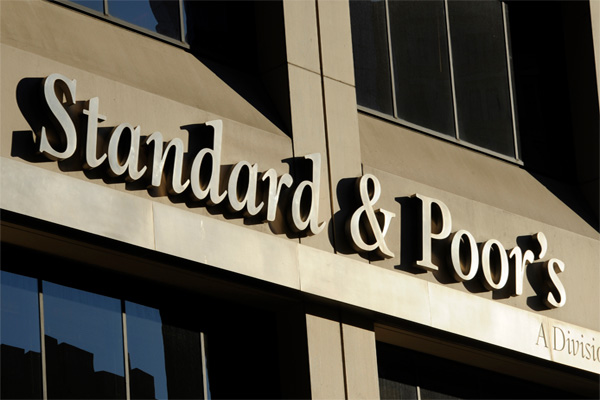
Kapitalbank’s ratings upgraded to ‘B/B’
“The upgrade stems from our view of Kapitalbank’s improved capital position. The bank’s risk-adjusted capital (RAC) ratio before diversification adjustments was 4.2% at the end of 2015, supported by robust core earnings that exceeded our previous expectations. We believe the bank will likely maintain its current level of capitalization, with the RAC ratio remaining in the 4.0%-4.5% range, compared with 3.0%-3.5% previously. Consequently, we have revised our assessment of the bank’s capital and earnings to weak from very weak,” the agency said in a statement.
“We base our RAC ratio forecast on our assumption that the bank’s loan book will expand by about 25% per year over the next 12-18 months, with assets increasing 30%-35%. The net interest margin is expected to stay high at 5.5%-6.0%, while the cost of risk will likely remain at 1.5%-2.0%, which is in line with the historical average for the bank,” S&P Global Ratings said.
“We note that Kapitalbank’s tempered growth appetite owes partly to the Central Bank of Uzbekistan’s efforts to tighten capital adequacy regulations. In particular, the regulator increased the minimum total capital adequacy ratio to 11.5% in 2016 from 10%, and this ratio will increase by one percentage point every year until it reaches 14.5% by 2019. We believe that, during that transition period, Kapitalbank is likely to continue operating with a capital cushion of 100 basis points higher than the minimum capital requirement,” the agency said.
“Our forecast also factors in the bank’s planned issuance of preferred shares in accordance with presidential decree No.2454, which stipulates that 15% of a bank’s chartered capital should be from foreign investors. We understand that the bank plans to issue preferred shares with an option to convert them into ordinary shares totaling 15% of its chartered capital. But we don’t expect the new investors will exercise this option over the next 12-18 months or have a significant impact on the dividend policy. We do not expect any dividends on common equity to be paid within the next two years,” the statement reads.
“We continue to assess the bank’s risk position as adequate, balancing its good asset quality against higher-than-average foreign currency risk. We note that Kapitalbank is dependent on deposits in foreign currency, which constitute 62.5% of total deposits. While this risk is relatively easy to price in Uzbekistan’s managed-peg environment, and the bank prudently hedges this exposure, we believe this may turn out to be a primary source of risk in the future, if the currency regime changes or there is an unexpected currency shock. We also note that the bank’s exposure to related parties may exceed 5% of total loans stated in the accounts based on International Financial Reporting Standards. We note that part of this exposure is to leasing companies with somewhat diverse underlying risks,” S&P Global Ratings noted.
“The stable outlook reflects our expectation that, over the next 12-18 months, Kapitalbank will maintain its capital buffers, despite tightening minimum requirements in Uzbekistan, with the RAC ratio consistently at 4%-4.5%. Moreover, we assume that Kapitalbank will not expand into untested areas beyond its core banking activities,” the agency added.
“A positive rating action, although unlikely in the next 12-18 months, may occur if Kapitalbank’s capitalization improved to levels we would consider adequate, with the RAC ratio exceeding 7%, or if we saw the bank’s business position strengthening significantly toward that of state-owned banks, the S&P Global Ratings said.
“A negative rating action may follow if we observed that the bank was not able to build its capital base, putting it at risk of not meeting the central bank’s capital adequacy requirements, or if the bank’s competitive standing in the market were to weaken. Failure to maintain asset quality in line with systemwide levels, with the cost of risk materially exceeding 2%, may also trigger a downgrade. A change in the central bank’s managed peg policy may also lead us to reassess Kapitalbank’s foreign currency risk and take a negative rating action,” it concluded.